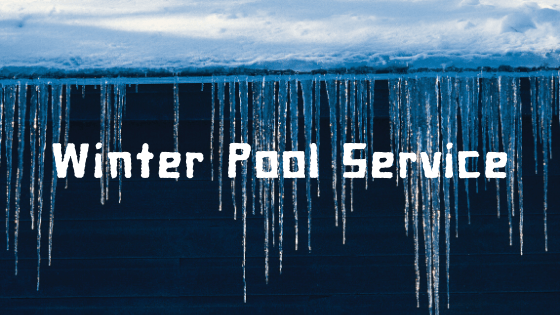There are few certainties in life: death, taxes, deadlines, and homeowners who want to suspend or cancel pool service during the winter. We understand the logic behind suspending pool service, but we also know that the logic is based on incomplete information. As pool professionals, it is our responsibility to inform our customers, who ultimately make the final decisions about their pool, about what cold water can do to their pool over the winter.
With the exception of the initial fill and startup, the vast majority of damage to swimming pools occurs during the winter. And that’s when nobody is paying attention.
Water quality is about sanitation and oxidation. It is keeping the water clean, clear, safe (sanitized), and algae-free. In the winter, sanitation is less of a concern because the water temperature makes it very difficult for contaminants like algae to reproduce. But dropping temperatures make an enormous impact on the other side, water balance.
Pool service makes a lot of sense when the weather is warm, and people want to swim. Everyone wants to have a crystal clear pool that looks pristine during the summer months, and that justifies the cost of weekly pool maintenance. This makes sense, as it is easy to see a direct relationship between money being spent and the benefits they receive.
Pool service doesn’t appear necessary when the water is cold (and perhaps covered for the winter) when nobody wants to swim. And why would it? Like we just mentioned, contaminants like algae do not reproduce and grow very well in cold water, so the water tends to look beautiful. Unless there is a visible carbonate scale everywhere (which should never form during the winter), cold, aggressive water looks amazing. It looks crystal clear. And that’s the trap.
Rather than just associating pool service with water clarity, fun, and happiness during the summer, it’s time to flip that narrative and cover the financial reasons for not ignoring the pool in the winter. Your pool is an investment worth protecting. We can agree that pools are not cheap, and are a significant amenity that boosts the home’s value. How do we protect the rest of our home from potential damage? We have insurance; do preventative maintenance; get our homes and roofs inspected after major storms; we water our lawns and flowers; we hire exterminators for pest control; etc..
Winter pool maintenance should be thought of in the same way–as an insurance plan. There is a continual need for it throughout the winter. The water chemistry of your pool is a constantly changing. For instance, the pool can be perfectly clear all winter, but when the water warms up in the spring, it can start to turn green, and calcium dust can fall out of solution, or crystals can form out of the surface.
So yes, winter pool maintenance costs some money, but nothing compared to the costs of the problems cold water can cause like calcite crystals, etching, and equipment damage. Such issues can easily cost thousands of dollars to resolve. Remember … cold water caused those problems. Don’t ignore it.
If you suspend pool service over the winter to save money, it can end up causing costly damage to the pool itself. Coldwater is more aggressive and can damage pools in the winter. Regardless of the type of pool you have, gunite, vinyl, or fiberglass, the water chemistry matters. All surfaces can fade and deteriorate.
We wanted to inform you, our customer, that winter water chemistry changes, and maintaining a pool during the winter is important. We hope this has helped you realize what’s at stake, so you make an informed decision.
If you still decide to cancel service or close your pool for the winter, you have ultimately taken control and liability of whatever happens during the winter.





